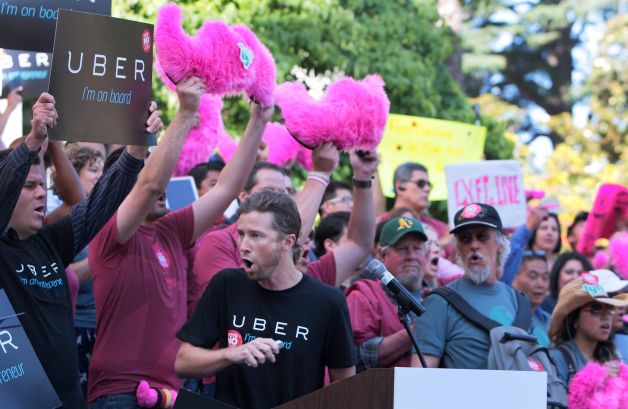Media

How Ridesharing Helps the Poor and Disabled
Earlier this week, I used Uber to get a ride in downtown Philadelphia. Curious, I asked my driver how long he’d been driving for Uber. “Two years,” he told me, noting that he used to drive a taxi. “I’m so much better off now,” he added.
This flies in the face of criticism that Uber and other ridesharing services—despite the numerous benefits they offer—harm taxi drivers.
Just yesterday, the Public Utility Commission (PUC) issued an $11 million fine on Uber (which will certainly be appealed in court). The fine stemmed for Uber operating without PUC approval, not from any harm to riders or threat to public safety.
In fact, several recent news stories highlight the many beneficiaries of ridesharing.
- A recent Pittsburgh Post-Gazette story looks at how Uber, Lyft, and zTrip have increased transportation options to underserved neighborhoods in Pittsburgh.
- Similarly, a Watchdog.org story shows the expanded economic opportunity generated by Uber and Lyft in Philadelphia.
- The benefits extend beyond simply serving neighborhoods taxis don’t. A CBS Pittsburgh story explains how drunk-driving has declined in the city thanks to ridesharing services.
- Another beneficiary of ridesharing has been disabled riders. An AP analysis looks at how major cities have utilized Uber and Lyft to provide transportation for residents with disabilities. Indeed, transit systems have actually saved money by using a voucher system to cover the fares of Uber and Lyft.
Certain special interests have thrown significant funds and manpower behind efforts to prevent Lyft and Uber from operating in the city. This would be most unfortunate for low-income residents of Philadelphia.
Emails uncovered by the Philadelphia Inquirer reveal the Philadelphia Parking Authority has conspired with the taxi industry to protect them from competition—at the expense of consumers.
Clearly, the PPA’s opposition to ridesharing services is about preserving its authority and regulatory powers. It has little to do with protecting consumers. Indeed, a study from the Cato Institute highlights that ridesharing services ultimately provide greater safety than taxis.
Given the need and numerous benefits of ridesharing, lawmakers should pass legislation authorizing ridesharing across the state, including Philadelphia.